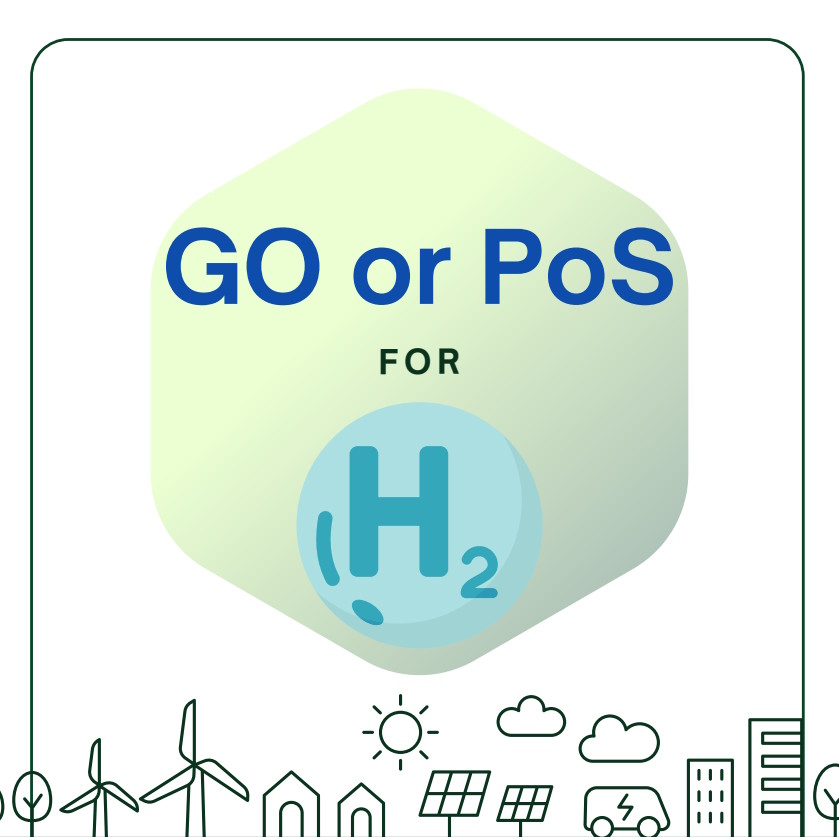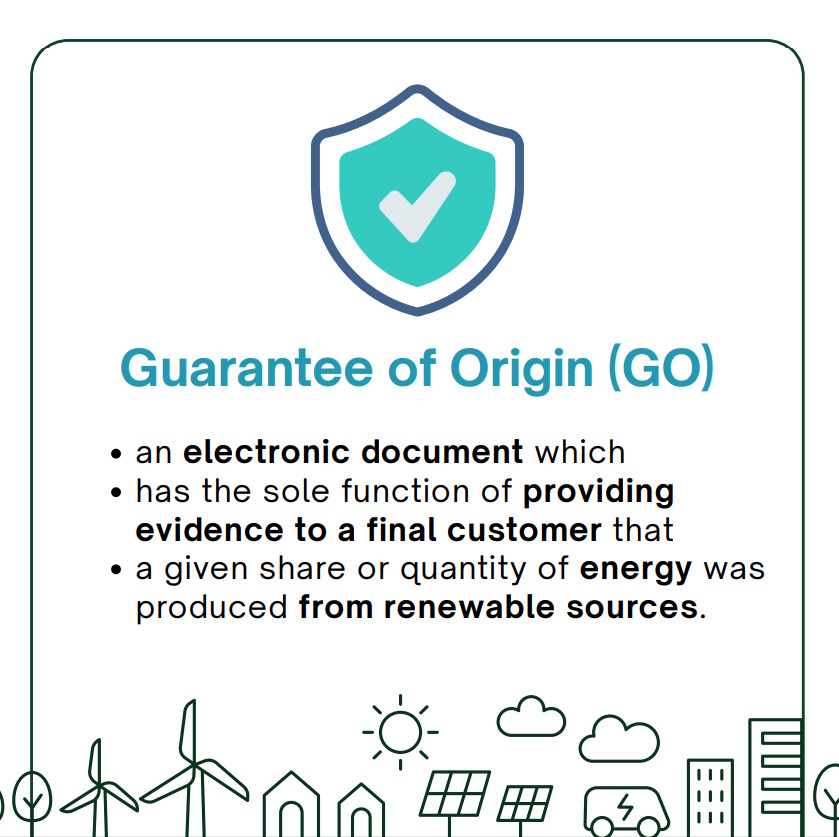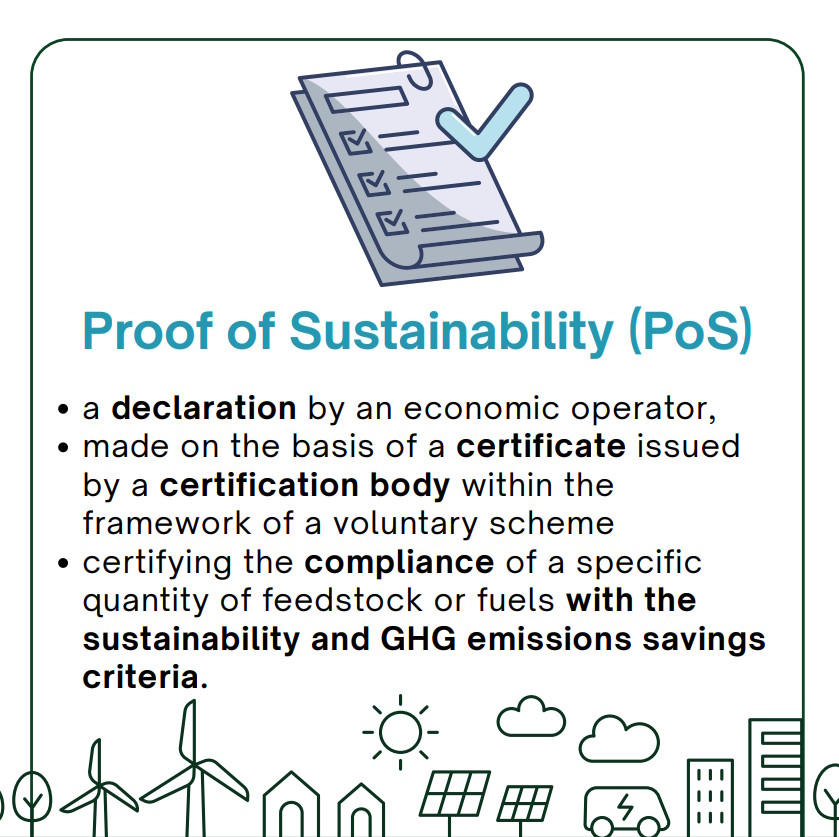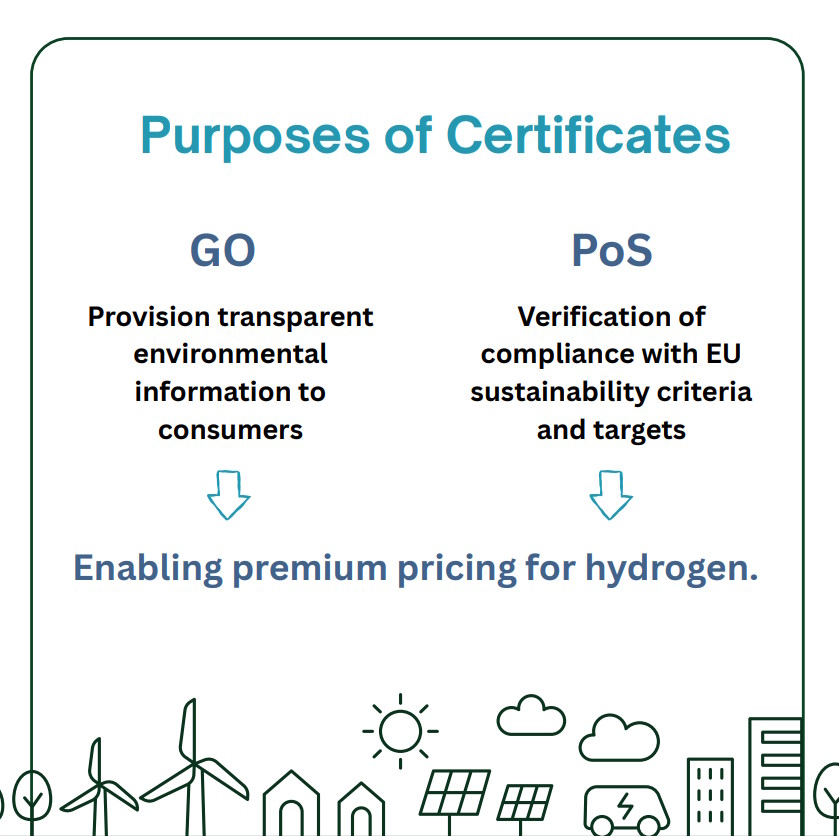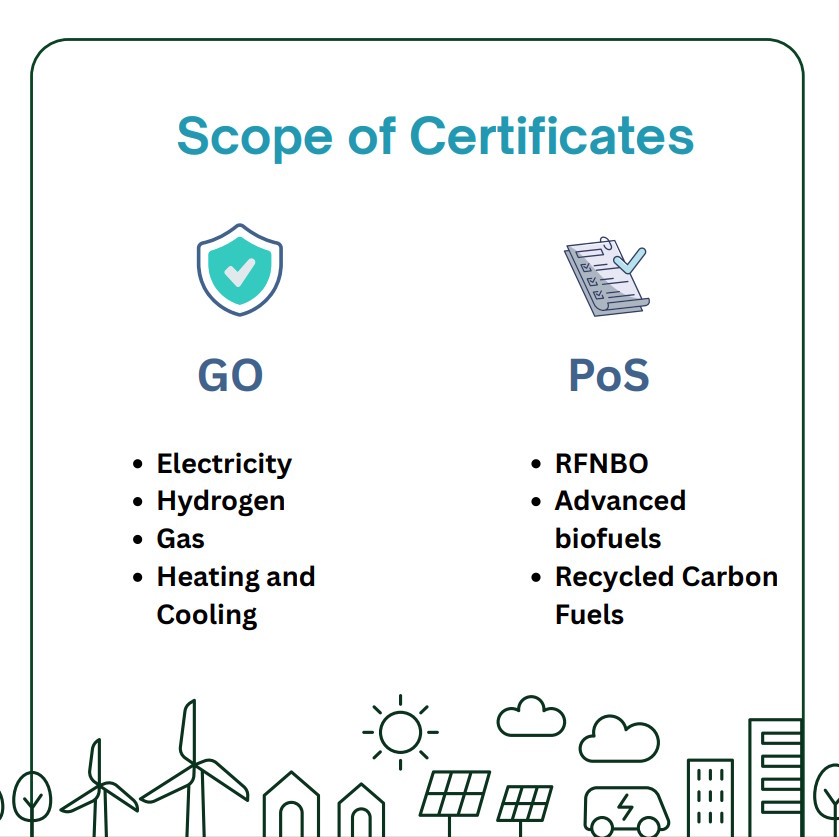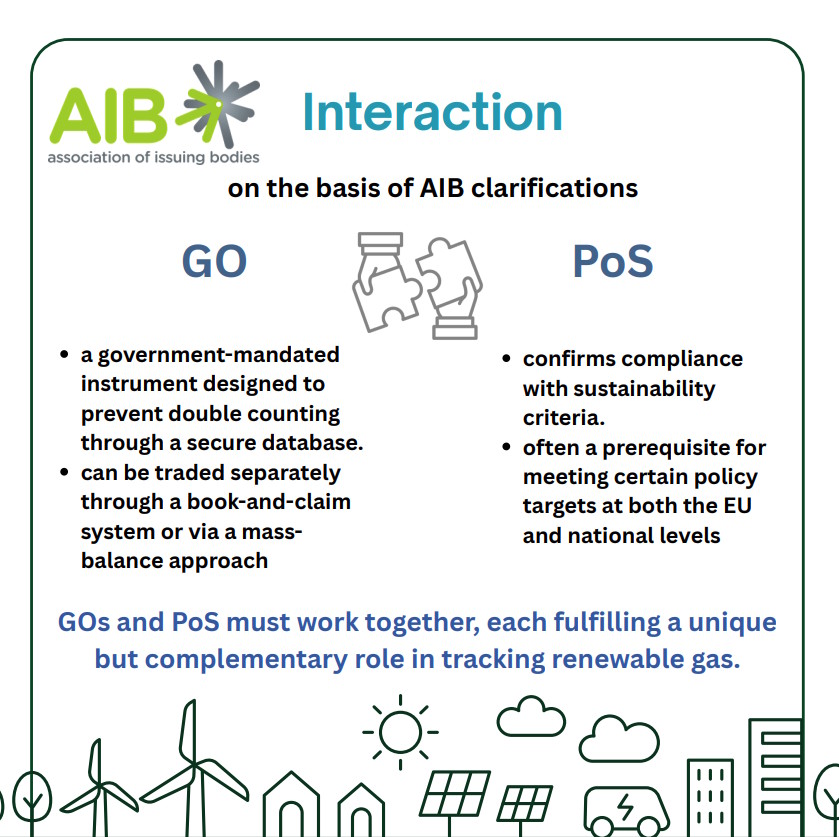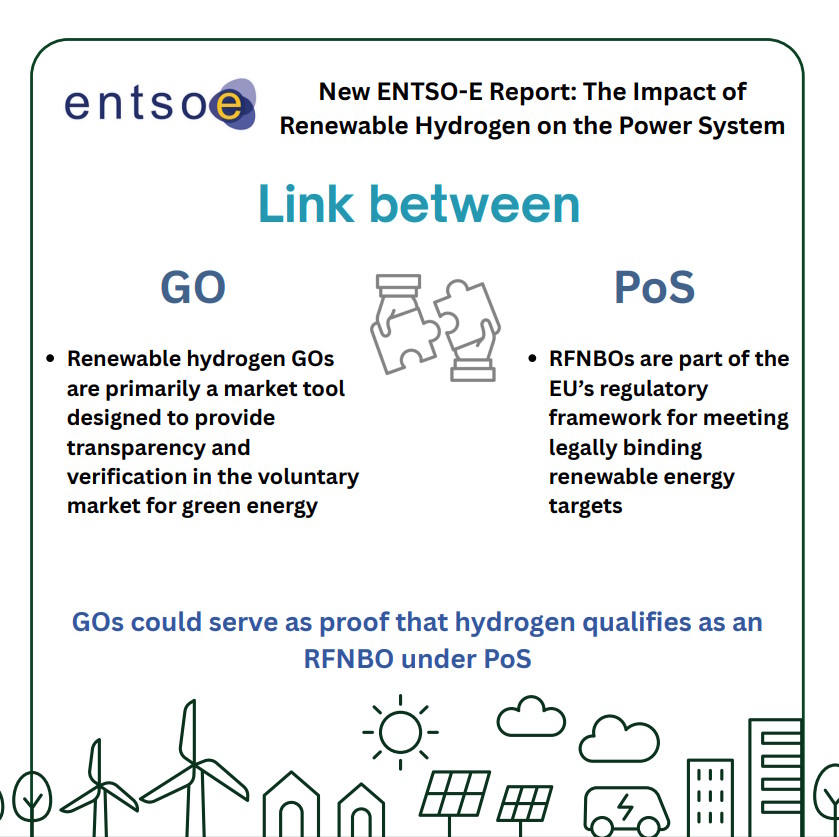Renewable hydrogen certification
Guarantee of Origin (GO) or Proof of Sustainability (PoS) for renewable hydrogen certification?
This question sparks many discussions about RED III targets, differences in premium prices and chain of custody (book&claim or mass balance).
Let’s examine GOs and PoS based on their:
- definitions,
- purposes, and
- scope of application.
These three criteria reveal that the two certificates have distinct scopes and purposes.
Guarantee of Origin
Guarantee of Origin (GO) is an electronic document which has the sole function of providing evidence to a final customer that a given share or quantity of energy was produced from renewable sources.
Proof of Sustainability
Proof of Sustainability (PoS) is a declaration by an economic operator, made on the basis of a certificate issued by a certification body within the framework of a voluntary scheme certifying the compliance of a specific quantity of feedstock or fuels with the sustainability and GHG emissions savings criteria.
Why do we need both?
Some clarifications can be found in recent publications from AIB and ENTSO-E. It is expected that GOs and PoS will work together, each fulfilling a unique yet complementary role in tracking renewable gas.
Notably, PoS is based on EU regulations, while GOs are managed at the Member State level. For this reason, harmonising these systems is essential to prevent market fragmentation and inefficiency.
❓ Curious about which certification scheme fits your needs?
➡️ Reach out here on LinkedIn or contact me.
